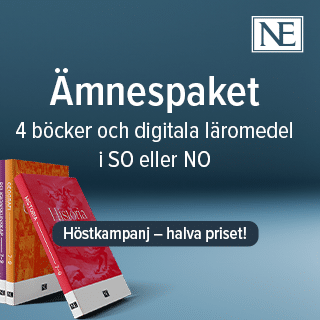ICT and learning in teacher education: The social construction of pedagogical ICT discourse and design
Carina Granberg
Professor Brian Hudson, Professor Gun-Marie Frånberg
Professor Avril Loveless
Umeå universitet
2011-05-27
ICT and learning in teacher education: The social construction of pedagogical ICT discourse and design
Institutionen för tillämpad utbildningsvetenskap, Interaktiva medier och lärande
Abstrakt
Carina Granberg har i sin avhandling studerat hur IT-stödda arbetsformer, som tex digital portfolio,har utvecklats och integrerats i lärarutbildningen. Resultaten pekar på att introduktionen av pedagogisk användning av IT i lärarutbildningen är en komplex och tidskrävande process. Under den processen skapar mindre grupper av lärarutbildare både en förståelse för och en design av de IT-stödda metoderna. Detta görs i en undervisningsmiljö som är präglad av en stark utbildningstradition som blir till ett motstånd för den nya arbetsformen. Det utvecklingsarbete som görs i de mindre lärarlagen når därför inte ut till lärarutbildningen som helhet.
ICT and learning in teacher education: The social construction of pedagogical ICT discourse and design
Background In recent decades, system-wide policies and substantial resources have been directed towards enhancing the use of ICT in learning contexts. This development can be observed at international and national levels. However, reports have indicated a slow uptake of the use of ICT for pedagogical purposes among compulsory schools and teacher education institutions. Although the teacher education at Umeå University follows this pattern, there have been several initiatives in using ICT for learning in the teacher education programmes. The aim of this study is to scrutinise the process in which ICT-supported methods for learning have been introduced,used and disseminated throughout teacher education.
Methods Three ICT-supported methods for teaching and learning werechosen for this study: digital individual development planning (IUP), blogsand e-portfolios. To capture teachers and students experiences ofintroducing the pedagogical use of ICT, 115 interviews were conducted andfour questionnaires were administered over a four-year period (2006-2010).Course documents and observations of blogs and e-portfolios suppliedadditional data. Hermeneutics was chosen as the methodological approach.Thematic content analysis was carried out in the first three part-studies, andtheoretical frameworks suited for the identified themes were chosen for theanalyses. Since pedagogical discourses appeared to be important, discourse analysis was used in the fourth part-study. A final meta analysis has been carried out and is presented later in this thesis.
Results In Umeå, as in other countries, teacher education has been slow toadopt ICT for learning. Still, the use of ICT for learning has increased overtime. ICT-supported methods such as IUP, blogs and e-portfolios have found their way into the context through a recontextualisation process in which ICT discourses and designs are socially constructed. However, the recontextualisation process could merely be found within sub-fields, such as teacher teams and project groups, since in the main-field (i.e. teacher education) traditional ways of teaching and learning have been internalised. These traditions hold symbolic capital, and teachers who have the means todo so will act according to their habitus and defend the traditions. The recontextualisation process will therefore be kept within the sub-fields, and the dissemination will be limited. Furthermore, the sub-fields are rather isolated from one another, and therefore pedagogical ICT discourses and designs are created in varied ways. However, none of them could be regarded as internalised, and the social construction of pedagogical ICT discourse and design has to be considered to be still under construction .
Relaterade länkar

Fritidshem
 Åk F–6
Åk F–6 Matematikångest
 Åk 4–Vux
Åk 4–Vux 






